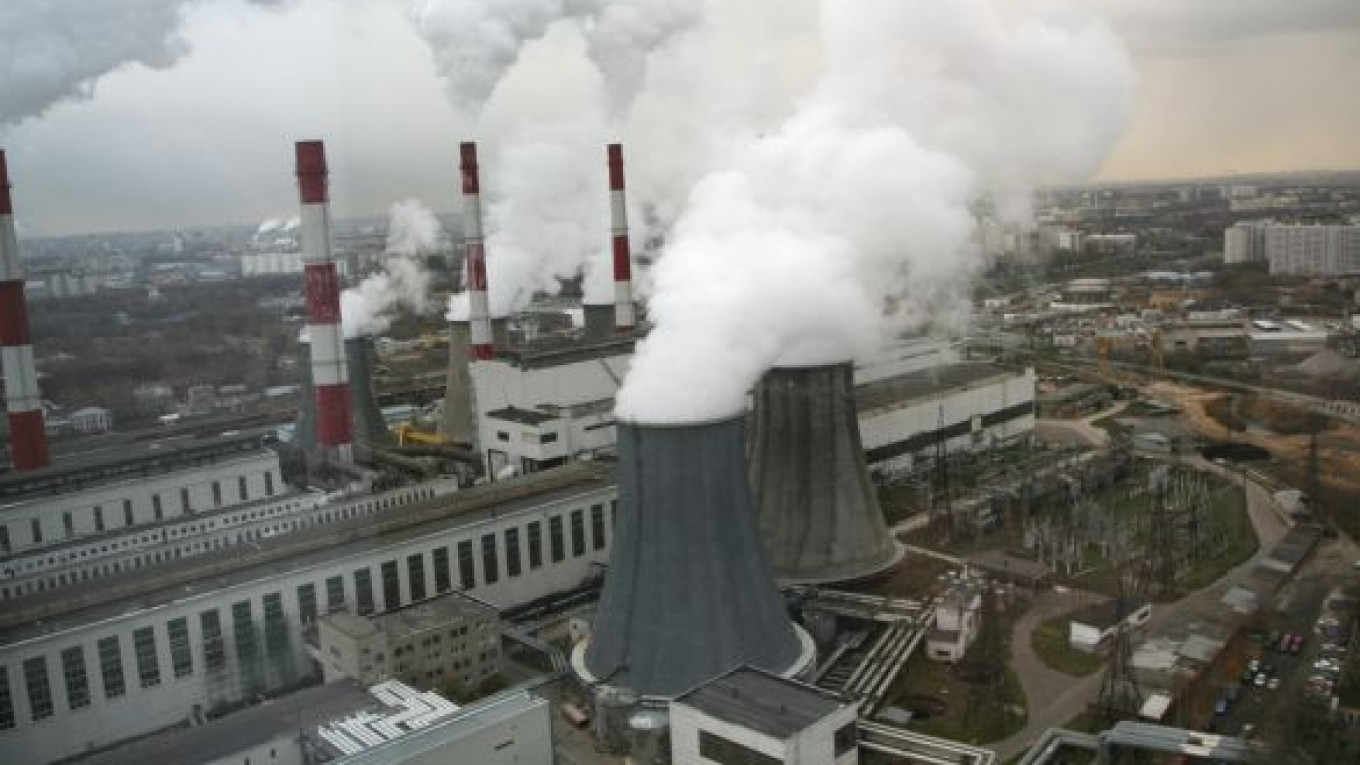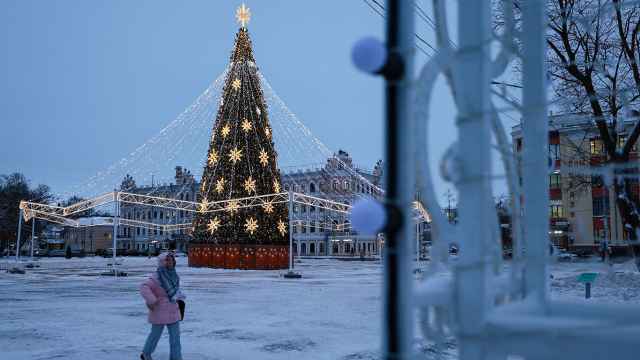Russia submitted for registration its first carbon emission reduction project under a special United Nations procedure, a step that can signal “a substantial increase” of followers, a UN regulator said Tuesday.
The joint implementation project, created under a UN Kyoto Protocol mechanism, will be located at the Shaturskaya thermal power plant near Moscow, the UN Framework Convention on Climate Change said in a statement from Bonn on Tuesday. The so-called JI projects generate tradable emission-reduction units that countries can use to meet their obligations to cut greenhouse gases under the UN climate protection treaty.
“This is a much anticipated and very welcome development,” Christiana Figueres, executive secretary of the UNFCCC, said in the statement. “It’s another clear sign that JI has an important role to play in directing investment to emission reduction in industrialized countries.”
The project assumes building an additional electricity generation unit using an energy-efficient combined cycle gas turbine, the UNFCCC said. It’s one of 15 joint implementation projects approved by the government at the end of July, and its registration will be deemed final after 45 days if it passes the UN-supervised scrutiny.
The project is the first in Russia under the Track 2 procedure, where the verification of emission reductions is supervised by the Joint Implementation Supervisory Committee. Under Track 1, the verification procedures and the issuance of emission-reduction units are left up to the host country.
The project is one of 15 that the Russian government approved at the end of July, which a government official said would have the potential to generate 30 million carbon credits, called emission-reduction units, up to 2012.
Under JI, companies can invest in carbon-cutting projects in nations that signed up to emissions targets under Kyoto, and in return receive ERUs, which can be used toward their own corporate emissions targets or sold for profit. The JI mechanism was worth $354 million last year, according to the World Bank.
There are now 234 Track 2 projects in the pipeline and 177 Track 1 projects registered, accounting for potential reductions of about 500 million metric tons of carbon-dioxide equivalent by the end of 2012, according to the UNFCCC.
According to UN data, Russia is home to 103 projects, or 61 percent of those in the JI pipeline. They are capable of cutting some 229 million tons of carbon dioxide by 2012, or 57 percent of the total estimated cuts.
“This is an extremely positive first step, considering that Russia is the country with the largest potential for JI,” said Benoit Leguet, JISC chairman. “The carbon community has been waiting for this for four years, since the JISC launched the Track 2. We also need to look to the future, and to the essential role of JI Track 2 in the post-2012 world.”
The Kyoto Protocol expires at the end of 2012, and climate-change envoys worldwide are bracing for the next round of negotiations on a new climate-protection framework. The talks are due to start toward the end of November in Cancun, Mexico.
(Bloomberg, Reuters)
A Message from The Moscow Times:
Dear readers,
We are facing unprecedented challenges. Russia's Prosecutor General's Office has designated The Moscow Times as an "undesirable" organization, criminalizing our work and putting our staff at risk of prosecution. This follows our earlier unjust labeling as a "foreign agent."
These actions are direct attempts to silence independent journalism in Russia. The authorities claim our work "discredits the decisions of the Russian leadership." We see things differently: we strive to provide accurate, unbiased reporting on Russia.
We, the journalists of The Moscow Times, refuse to be silenced. But to continue our work, we need your help.
Your support, no matter how small, makes a world of difference. If you can, please support us monthly starting from just $2. It's quick to set up, and every contribution makes a significant impact.
By supporting The Moscow Times, you're defending open, independent journalism in the face of repression. Thank you for standing with us.
Remind me later.






